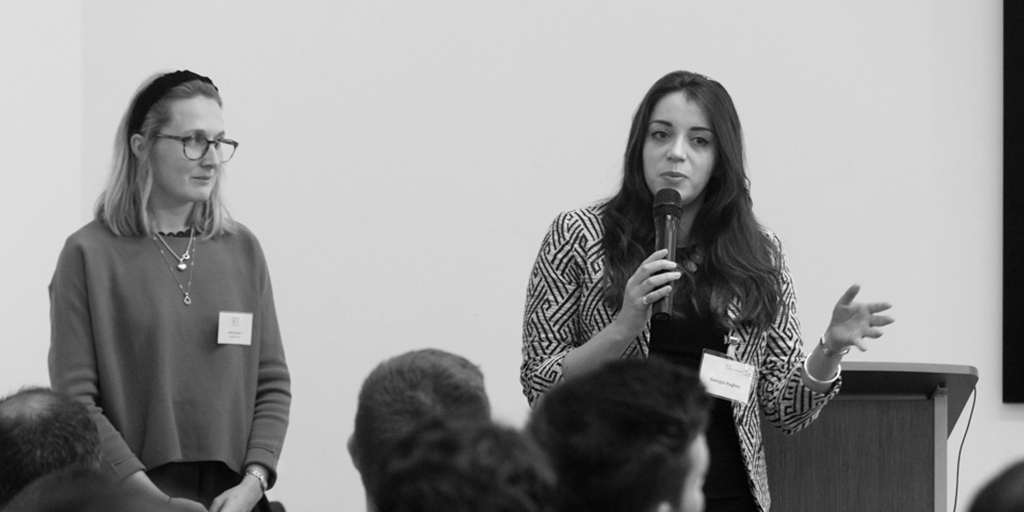Mercy Mhindurwa, Vendigital
The Negotiation Showcase was delivered by The Gap Partnership’s Practice Head, Adrian Ritchie. The session was interactive and involved several case study exercises that really brought the session to life.
To begin with Adrian highlighted the fundamental differences between selling and negotiating. Selling behaviours such as persuading, explaining and arguing can undermine your position in a negotiation. Negotiation behaviours such as questioning, listening and stating your position allow you to be in control. A fundamental rule of negotiation, ‘you need to be in control’. Once in control, information is power, therefore, always plan a negotiation strategy to keep you one step ahead and well informed. Maintaining power then lies in your ability to anchor and make proposals.
There were three key points that really resonated with me. The first is that fairness can work against you in the negotiation process, there are no rules. The second point is that, in some instances, being illogical can be powerful tool in setting the tone of the negotiation. The final point is that a satisfactory outcome in a negotiation lies within the process itself. This process may vary depending on the type of negotiation that you are involved in, for example, if you are looking to build a long-term relationship you may look for high value, low cost options/ solutions that generate value for both parties.
The case study exercises were a great addition to the workshop. Positions within set scenarios were handed out to groups of 2-3 young consultants. The variety of outcomes to the negotiations highlighted the fact that there are many ways in which to slice a pie. The behaviours, methods and tactics that you use within a negotiation will determine how big your slice of pie is.
Ben Whitaker, Arcadis
On Thursday 18th October, 10 Arcadians attended the yearly Young MCA negotiation showcase event run by the Gap Partnership.
The event involved Adrian Ritchie (Partner at The Gap Partnership) providing a lively showcase on how to effectively negotiate and utilised some interactive group exercises to aid in our learning for the evening.
Whilst there has been much debate over the years as to whether negotiation is an art or a science what is clear is that it is an extremely useful skill that takes years to master. Indeed, Adrian noted, that whilst he was going to give us a crash course in negotiation it often takes a week long course to actually adapt behaviours which are ill-suited to negotiation. Whilst there are many of these behaviours I thought that I would briefly touch on three.
Firstly, Negotiate don’t sell. If you are negotiating and you start to utilise selling behaviours such as persuasion, rationalisation, explanation and convincement you are demonstrating weakness to your counterpart and undermining your position. Instead, it is important to utilize powerful terminology aligned with negotiation; Stating (tell don’t ask), Control, Questioning, Listening, all of these things provide you with information and as we know knowledge is power.
Secondly, Fairness. In order to be a good negotiator there is no room for being fair. Social norms generally work against us when negotiating and being fair is one of them. Whilst this may seem obvious, Adrian pointed out that fairness is instilled in us from a very young age and therefore it is important to adapt our behaviour in order to realise the best deal.
Thirdly, Satisfaction. If the person on the other end of the deal is satisfied then it means that they are happy that they have got as much as they can out of the negotiation. Here’s an example to demonstrate:
Example 1: You have haggled tirelessly for an hour over a radio that was originally £100 and you eventually pay £75 for it. You come away from that situation feeling satisfied that you have got the best deal you could.
Example 2: You offer £50 and the seller shakes your hand immediately. You go home that evening with the niggling feeling that you could have paid £30 for it. Bizarrely, you aren’t satisfied even though you spent £25 less than you would have in example 1.
Now, imagine you are the seller of the radio, you have increased the buyers satisfaction whilst actually making a greater profit. Therefore, when negotiating it is key to make things difficult for the opposite side. Equally, as shown in example 2, generosity can actually engender greed, whereby the buyer now feels he could have saved more money. A satisfied party will also be happier to negotiate in the future.
Yet another excellent event by the Young MCA and I’m sure that everyone is looking forward to the next one. The following are 8 tips for being a good negotiator.
A good negotiator:
- Doesn’t sell.
- Adapts their behavior to the circumstances.
- Leaves the other party satisfied
- Is in charge
- Assesses and exercises power
- Is able to build trust
- Strategically plans
- Seeks out low-cost / high-value targets
Negotiation is something that as consultants we will be required to utilise a lot over the course of our career and therefore it is crucial to begin to adapt our behaviours around it.

